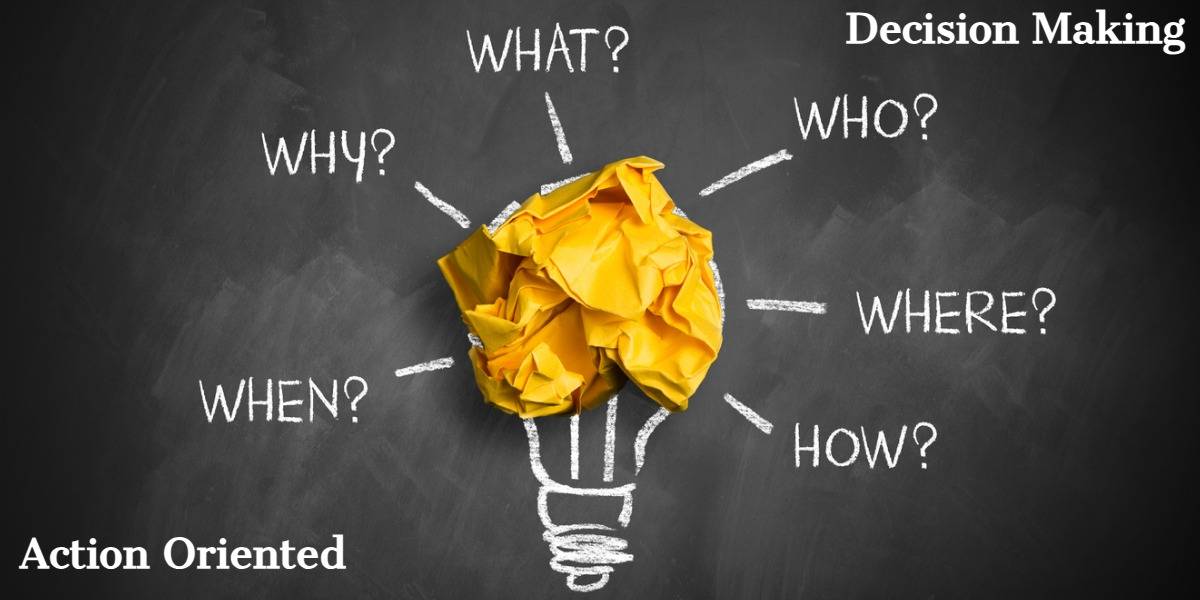The Ultimate Guide to Problem Solving Skills for International Students
Problem solving skills form an essential part of a student’s life. From experiencing challenges and navigating their way out with clear-cut solutions, they have to face et all. Do you think you are smart enough to use your problem-solving skills and find solutions? Check out the article to understand the problems and use the right skill set to find solutions.
Students who are studying abroad, are exposed to a different world altogether which requires certain problem solving skills. While they are on their own in a foreign land, they must be vigilant. Problems can come from anywhere, but solutions may not. However, having the right presence of mind and skills can help students find their way out. So, if you are a student and wish to hone your problem-solving skills, refer to this guide.
Importance of Problem Solving Skills for Students
Building problem-solving skills in students is important especially when they are studying abroad because:
- They are on their own in a foreign land, and they have to be bold enough to make their own decisions.
- They may or may not find someone at their disposal at all times to help them out.
- They need to understand what is right and wrong for them. What benefits them the most and solves the problem accordingly.
- This is a basic life skill in the end which comes with experience when students are exposed to real-life situations.
- It makes a person more confident and less hopeless when things don’t work out in their favour.
Ultimately problem solving is a life skill which is important for students to begin their learnings at the early stage. This is so, that students can face situations head-on and be able to find a solution themselves.
Predict your IELTS, TOEFL, and PTE in just 4 steps!
10 Problem Solving Skills for Students
So what are the problem-solving skills? How students react to problems and find a solution based on the type of problem. The following are 10 problem-solving skills for students, which can help them with solution-building while studying abroad:
1. Research and Analysis
The first problem-solving skill is none other than research and analysis. Any problem at any given point in time cannot be tackled unless there is research and analysis. Students should keep a diary where they record what went wrong and research the necessary reasons. After concluding just analyse what went wrong and fix it. This can be a very useful problem solving skill among students.
2. Communication
Communication is the next key to problem-solving. If you can discuss openly and communicate properly you may find solutions to your problems easily. Thus, this is why communication is an important problem-solving skill for students. Without proper communication skills, students will not be able to put across their points of view. Also, there will be no solution without proper communication. Communication is an ideal problem solving skill for the future.
3. Decision-Making Skills
The next crucial problem-solving skill for students is making sound decisions. While students are studying abroad, they may be faced with several challenges. But overcoming those challenges with sound decision-making power is what is needed. Thus, decision-making does not come to students easily. Students should be allowed to make decisions at home also for menial issues. This way, they will build their decision-making skills and may not get stuck in bigger situations abroad. Thus, decision making is another problem solving skill for students.
4. Promptness & Action Oriented
Prompt decision-making and taking charge of the situation are equally important problem solving skills. Students have to be prompt with their actions to solve the problem. Plus action oriented too so that the problem does not build on more complications. Thus, promptness in making a decision and having an action-oriented approach to solving problems is a skill one must hone.
5. Collaboration to Counter Problems
Sometimes some problems require collaboration to come together and solve a particular problem. Getting everyone together under one roof to discuss and come to a common conclusion. A lot of times, students will be given a group project or exercise for completion. In this case, working together towards a common goal and coming to conclusions about possible problems is necessary. Thus collaboration is also an important problem solving skill.
6. Team Player
Sometimes one must keep everything aside and just be a part of the group. Problems’ solutions come out automatically. Being a team player and being with your team can help you collaborate, discuss and understand each other’s points of view to find solutions to the problems. Thus, by being a team player a student can be both a problem solver and can get solutions to his/her problems. Hence, this is one of the most advantageous problem skills for students.
7. Good Listening Skills
Be a good listener! A lot of times, by being a good listener you can derive results by just being a good listener. When discussions are going on, just listening to people around can help students conclude. They may get more ideas which can be beneficial in solving the problem at hand. Thus, being a good listener is also a problem solving skill which not many have, but this skill can prove very beneficial in the long run for students.
8. Creative and Innovative Thinking
Problems can be of different types, while some require a clear-cut solution, others require a creative solution. Those problems which require creative solutions will also require students to think innovatively. Thus, for situations like the one mentioned below. So here's a problem solving skills example:
“There are art students who wish to portray their works in an exhibition in university. But the university doesn’t have enough funds to hold a function like this. So what can be the solution?
Creative Thinking Solution: So students can suggest, not to hold a magnanimous exhibition. Contribute to making that function happen. And to attract people to come by announcing on social media.”
Thus, there can be numerous problems like these which may require students to think creatively and innovatively to solve problems.
9. Resilience
Students who are resilient meaning, mentally strong enough to withstand any challenges can solve problems and bounce back easily. Resilience is a skill which is important in the long run so that students do not get bogged down easily. Also, they can make sound decisions for the problem. If something for instance a solution doesn’t work out also, students who are strong enough to face challenges will work their way out. Thus, by being resilient, students can navigate their way out of problems.
10. Emotional Intelligence
Emotionally intelligent students have the power to solve problems with a clear head. Those who are emotionally intelligent can collaborate better, and find clear-cut solutions. There is room for understanding everyone’s perspectives and then concluding. Thus, students should focus on building their emotional intelligence to solve problems.
These are the 10 most important problem-solving skills for students. These are the ideal skills for tackling problems and devising solutions. Based on the occurrence of a problem understand what skill is needed and for finding solutions to problems by using the above given skills to better their problem solving skills.
7-Step Problem-Solving Guide for International Students
After understanding the problem-solving skills, let us understand the next step. The next step is the method and technique of identifying problems and working your way towards solutions. Here is a step-by-step guide for problem-solving techniques for international students:
Step 1: Identify the Problem
The very step of problem-solving is identifying the problem. What is the problem? How to counter the problem? Is the problem one-time or recurrent? Is the problem a reaction to an action? Or is the problem cropping up because of a reason?
Problems encountered by students can be of different types and solutions to problems can also be different. So identifying the problem is the first step towards deriving solutions.
Step 2: Define the Problem
Identify the problem first and see how the problem has come up. There may be various aspects towards the problem, acknowledge all those and check if there is a possibility of more underlying problems arising.
For example, when you do one assignment, you refer to different resources. But if you stick to say one set of resources like books, you might end up missing out on scholarly articles on Google for reference. Thus, the problem here is research and why is it not appropriate because the student lacks the correct strategy to research and complete an all-rounder assignment.
Step 3: Work Towards Solutions
Now jot down the possible solutions to the said problem. Understand how the problem arose and what should be the encountering solutions based on each step for the said problem. Check all the pros and cons of the solution and also check if it will be feasible for the problem in question.
For example: International students who are unable to manage their time, will have to find a solution. They would have to make a schedule and stick to it, simple! Thus, this way, everything will be sorted and nothing will be left out.
Check out: Powerful Time Management Strategies for International Students
Step 4: Make an Implementation Plan
List how to implement the solutions per se. The problems that have arisen, the step-by-step process of countering the problem and how the implementation needs to be done. Once the implementation plan is set, the problem can be encountered.
As discussed above, each problem is an action which needs a quick or slightly delayed reaction. Thus, making a plan as to how solutions need to be implemented plays a major role in problem-solving.
Step 5: Inform Stakeholders about the Solution
Make a plan and communicate if needed for the said plan’s solution. All stakeholders involved will have to be informed of the problem. The timeline to counter the problem with plan B should always be in place for problem-solving.
In the case of international students, stakeholders can be anyone teachers parents or even peers. The problem related to studies or beyond studies can be brought up with the concerned people. Having a backup option depends on a case-by-case basis.
Step 6: Understand the Outcomes
Once the problem has been countered, the problem-solving techniques are in place, the overall problem can be solved. After the problem is solved, stakeholders can sit together and understand how the problem can be encountered if occurs suddenly.
If for instance, the student forgets to submit an assignment on time and the deadline is that very day of attendance, then what can be the possible solutions?
- Either find time and finish the task
- If already completed, request for submission on the next day.
- In case you forget your assignment in the hostel, you can either go and get it if it is near or request an extension.
- Remember if problems or situations like these arise in future, then what you should do?
Step 7: Check if Multiple Solutions are Needed
In some situations, the problem may be one, but it would require multiple solutions to solve it. For example, if a student fails an exam, there is one problem but to solve it there are multiple solutions. These solutions may include:
- Increasing the brain power of students
- Concentrating more on studies with the right techniques.
- Amping up productivity by using certain apps. Check out 10 Apps for Students to Boost Productivity
- Managing time properly for studies
Thus, there is not one solution, but multiple solutions. Together these solutions will help students in performing better in the exam they got a backlog in.
Problem Solving Skills Examples for Students
Now that you have understood problem solving skills definition, it now time to look at problem solving skills examples. Students can refer to these problem solving skills examples to be able to understand how to solve problems on their own.
Problem Solving Skills Example 1
Problem: You have started college abroad and you have a problem with your roommate because he/she is messy and unhygienic. You cannot switch rooms with anyone else as per rule and you are struggling to find a solution. So what problem solving skills would you use to tackle a situation like this?
Solution: You can go to the warden and politely request for a room change. Or you can request your roommate to maintain health and hygiene. Here you can use - Communication and Decision Making Skills to sort out this problem.
Problem Solving Skills Example 2
Problem: You are a part of a group project. There are 5 people in the group, and you have recently fought with one group member over an issue previously. You do not have an option to change your group, you have to be in that group and finish the project because it will be marked. How will you tackle the situation?
Solution: You can amicably Communicate and make peace with the situation. And/or you can be a Team Player and play along and not pay heed to what happened previously. Also, you can Collaborate with that group member if you like his/her ideas to not make things worse between you two. You should also use your Emotional Intelligence and not get affected by things.
Problem Solving Skills Example 3
Problem: You have spent your time in a part-time job and other curricular activities and hence you are at the verge of failing an exam. What can be a possible solution to the problem?
Solution: You have to Research and Analyse where did your time go. Then you can Collaborate with classmates and prepare for your exam. Practice Resilience because it is a tough situation, but with a clear mind and head you can conquer all odds like a pro!
Problem Solving Skills Example 4
Problem: You are the Cultural Secretary of a Club and you need new ideas to make activities and events interesting. You just have 2 days! What will you do?
Solution: Here you will have to Think Creatively and Innovate because you have new ideas. If you cannot do it yourself, you can Listen to podcasts for ideas. Finally, you can Collaborate with people alike and come to conclusions.
As an international student, you'll come across a lot of situations which would require clear-cut solutions. Problem-solving skills don't develop overnight, but you'll become more resourceful by actively seeking solutions and learning from your experiences. Remember, collaborating with professors, advisors, or classmates with more experience can be valuable in overcoming challenges. So now do you feel equipped with answers to how to solve a problem? If yes, then solve them like a pro!
Problem Solving Skills for Students FAQs
Q. Why problem-solving skills are important for students?
A. Problem solving skills are important for students because, they make a student confident to conquer any challenge, makes them stronger for making their own decisions, helping them think creatively and ultimately making them an all rounder who can solve problems easily. This is an important life skill because they may not have people around them always to guide them, at some point they will have to make their own decisions. Thus, at an early stage of life, students shall be exposed to making their own decisions and conclude based on the nature of the problem.
Q. What is problem solving skills for students?
A. Problem solving for students is nothing but a challenge which needs solution. There is no one way for problem solving, because the problems vary across big and small enterprises and based on how they are also run. There are various areas where someone may be stuck to make a decision and solve a problem. The basic process for problem solving is to:
- Identify the problem and the root cause of it.
- Clarify the problems and reasons for how they rose.
- Ideate and use divergent thinking to solve the problem.
- Develop the solution for solving the problem.
- Finally, implement the solution and see if the solution fits in with the said purpose or not.
Q. How can I improve my problem solving skills as a student?
A. You can improve your problem solving skills as a student by using the following techniques:
- Identifying the problem
- Brainstorming ideas for future
- Asking open ended questions and thinking of possible solutions
- Evaluate solutions in hand and keep them handy for use
- Be an active learner and discuss a lot
- Focus on positive solutions rather than negative ones
- Also try to find long term solutions rather than short term ones.
This way, students can improve their problem solving skills as students.

Aishwarya is a professional Writer currently working as a Study Abroad Expert in the Editorial Team at Shiksha. She has over 5 years of experience and is skilled at creating Online Content with leveraged knowledge i... Read Full Bio
- Universities in UK175 Universities
- Universities in USA1038 Universities
- Universities in Canada174 Universities
- Universities in Australia463 Universities
- Universities in Ireland32 Universities
- Universities in New Zealand70 Universities





